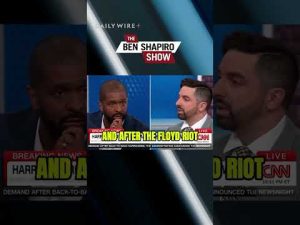In a recent event in Bolan, Pennsylvania, Tim Walz, the unique choice made by Kamala Harris for the vice presidential spot, attempted to connect with rural voters. His appearance was reminiscent of a classic rural stereotype, complete with flannel and a hat—a look that one might expect from a weekend cattle rancher rather than a serious political candidate. While wearing this ensemble, he endeavored to explain his economic program, which can be summarized as a somewhat perplexing mix of ideas that left many scratching their heads.
Tim Walz’s approach begs the question: Can a political candidate whose grasp on economic complexities seems tenuous really be considered a serious contender for national office? Despite his earnest efforts, his presentation came across as preposterous, almost like a child playing dress-up in a cowboy outfit. This raises alarm bells for the kind of leadership America truly needs—one that can navigate the complexities of today’s economic landscape rather than merely don the costume of a rural ideal.
Some observers noted the contrast between Walz and another candidate, Senator Vance, who has gained attention for his book reflecting on his upbringing. However, unlike Vance, who has at least tried to engage positively with his roots, Walz’s approach seems to lean towards diminishing the very communities he aims to represent. His economic proposals appear to lack a true understanding of venture capitalism, as he offered explanations that did little to clarify its relevance to rural America. This adds to the sense that he is more an outsider than a thoughtful voice for traditional American values.
To add a dash of irony to the situation, one might wonder what qualifies Walz for such a pivotal role. If he himself struggles to articulate the fundamental concepts of venture capital, how can he effectively lobby for policies that bolster economic growth? It’s a fair question, and one that should make voters pause before jumping on the Tim Walz bandwagon. The vice presidency is not a fashion show; it requires a sturdy grasp on policy, a deep understanding of economics, and the ability to communicate effectively with all Americans—rural and urban alike.
In conclusion, while Walz may be trying to court rural voters with his plaid shirt and hat, his inability to convey a clear and coherent economic plan leaves much to be desired. Voters deserve leaders who not only relate to them but also have the substance to drive effective policy. As this election cycle unfolds, it’s imperative for citizens to weigh the competence of their candidates against the flashy costumes and rhetoric that can often distract from the real issues at hand. In the end, seriousness in leadership should never go out of style.







